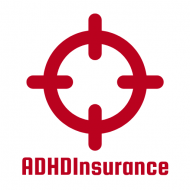Understanding the Unique Needs of Individuals with ADHD
Attention Deficit Hyperactivity Disorder (ADHD) is a neurodevelopmental disorder that affects millions of people worldwide. (source: Christopher Finlan) Individuals with ADHD often face unique challenges in managing their daily lives, including difficulties with focus, organization, and impulse control. These challenges can have a significant impact on their overall well-being and financial stability.
One area where individuals with ADHD may encounter difficulties is in securing adequate health insurance coverage. Traditional health insurance plans may not fully address the specific needs of those with ADHD, leaving them vulnerable to high out-of-pocket costs for essential treatments and services.
[adinserter block=”1″]
The Importance of Specialized ADHD Insurance
ADHD insurance plans are designed to provide comprehensive coverage for individuals with ADHD. These plans can offer a range of benefits that may not be included in standard health insurance policies, such as:
- Therapy sessions: Regular therapy can be crucial for individuals with ADHD to develop coping strategies and improve their quality of life.
- Medication costs: ADHD medication can be expensive, and insurance coverage can help offset these costs.
- Coaching services: ADHD coaches can provide personalized support and guidance to help individuals with ADHD manage their symptoms and achieve their goals.
- Educational support: For children and adolescents with ADHD, insurance may cover the cost of educational support services, such as tutoring or accommodations.
[adinserter block=”1″]
Key Factors to Consider When Choosing an ADHD Insurance Coverage Plan
When selecting an ADHD insurance plan, it’s essential to consider the following factors:
- Coverage: Ensure that the plan covers the specific treatments and services you need, such as therapy, medication, and coaching.
- Network: Check the plan’s network of providers to ensure that your preferred therapists and doctors are covered.
- Deductibles and copays: Understand the out-of-pocket costs associated with the plan, including deductibles and copays.
- Limits: Be aware of any annual or lifetime limits on coverage for certain treatments or services.
- Exclusions: Familiarize yourself with any exclusions or limitations that may apply to your coverage.
Alternative Options for Managing ADHD Costs
In addition to ADHD insurance, there are other options available to help manage the costs associated with ADHD:
- Health Savings Accounts (HSAs): HSAs can be used to pay for qualified medical expenses, including ADHD treatments.
- Flexible Spending Accounts (FSAs): FSAs allow you to set aside pre-tax money to pay for eligible medical expenses, including ADHD-related costs.
- Government assistance programs: Depending on your income and other factors, you may be eligible for government assistance programs that can help cover the cost of healthcare.
Finding the Right ADHD Insurance Plan
Finding the right ADHD insurance coverage plan can be a complex process. It’s recommended to consult with an insurance professional who specializes in ADHD to get personalized guidance. They can help you evaluate different options, compare costs, and find a plan that best meets your needs.
[adinserter block=”1″]
Individuals with ADHD may face unique challenges when it comes to securing adequate health insurance coverage. By understanding the benefits of ADHD insurance and carefully considering the factors involved in selecting a plan, individuals can find the support they need to manage their condition and live fulfilling lives.
Uncertain if your insurance covers ADHD testing? You’re not alone. Our comprehensive guide dives deep into the factors influencing coverage, explores potential benefits, and equips you with valuable information to navigate the process with confidence.
Dr. Jonathon Preston is a respected mental health specialist dedicated to helping individuals overcome challenges. With advanced training in psychology and decades of experience in the mental health field.

